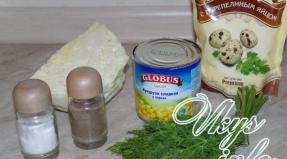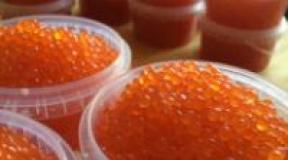Spicy herbs for fish. What spices go well with fish
Fish plays an important role in human nutrition. It is healthy and tasty, but it is often undeservedly relegated to the background after poultry or meat. Due to the large number of rivers, lakes and seas washing Russia, the hostess is given a huge number of types of fish to choose from, which can be boiled, stewed, fried, stuffed, pickled, salted, baked. To improve its taste, various spices are added to the dishes during the cooking process.
Why are spices useful for fish
Fish pulp itself is dietary and easily digestible, contains many vitamins and other useful substances. It was not for nothing that this product was included in the menu of Soviet canteens - remember “fishy” Thursday. Fish dishes are recommended for children and people on a diet due to diseases. The Japanese, whose diet consists mainly of seafood, are recognized as centenarians, even spending their old age on the move. And if you season the dishes with spices, then the benefits from them will increase significantly.
Useful properties of popular spices:
- Bay leaf strengthens the immune system and heart muscle.
- Black pepper increases appetite, destroys harmful bacteria.
- Cloves promote good digestion.
- Basil relieves inflammation, improves the functioning of the gastrointestinal tract.
- Nutmeg is necessary for those who need to strengthen memory, stimulate the brain.
- Turmeric actively fights carcinogens, reducing the risk of cancer.
- Chili pepper promotes quick satiety and weight loss.
- Saffron normalizes the production of hormones; it is recommended to add it to food for women who have problems in this area.
- Cumin has a positive effect on the production of bile.
- Dill is a natural remedy for bloating.
- Peppermint soothes the nervous system, it is advised to drink it before bedtime.
- Curry improves overall well-being.
Be careful when adding seasoning to a dish. Not all spices can be beneficial for the body. Hot spices such as chili, black pepper, garlic have the ability to irritate the mucous membrane. They should not be consumed by people with stomach ulcers, liver or kidney disease. Peppermint, for example, can cause heartburn, stomach discomfort.
Seasoning composition
A condiment is a mixture of spices that is added to a particular food. If we talk about a flavoring additive for fish, then it can be purchased ready-made. For those wishing to experiment with tastes or aromas, you can assemble the seasoning yourself, focusing on your gastronomic preferences. The calorie content of the spice averages 160 kcal per 100 grams.
Universal seasoning
The easiest way to improve the taste of a fish dish is to purchase a ready-made universal seasoning, which is sold prepackaged in any store. Choose the set of spices, which will not contain dyes, flavors, flavor enhancers. Pay attention to the salt or sugar content, these ingredients only add bulk. Ask for spices in the special seasoning departments, where individual sets are made at the request of the buyer.
What spices are suitable for fish
It is known that delicate fish fillets perfectly absorb the smells and tastes of various herbs. The classic version of such an additive is ground coriander, dried vegetables, parsley, turmeric, ground peppers, citric acid. Interestingly, the seasoning for marinating fish is fundamentally different from the spices that are used in heat treatment. This also applies to cooking methods: it is better to use some seasonings for frying, and others for fish soup. The seasoning may also differ depending on the type of fish.
Freshwater fish species
River varieties of this product have a specific smell that can be easily removed with lemon juice, citric acid, parsley, basil, anise, oregano and other spices. These spices will go well with fish such as:
- Pike;
- perch;
- trout;
- carp.
Sea fish
Spices for sea fish must be selected carefully. They should complement the taste of the main product, emphasize its natural aroma. These spices include a fragrant bouquet of ground peppers, thyme, lemon balm, ginger, bay leaf, mustard, parsley, and cloves. For smoked dishes, use fennel, sage, rosemary, and dill. These spices are ideal for:
- herring;
- flounder;
- mackerel;
- sturgeon;
- salmon
- hake;
- cod.
Seasoning for salting fish and marinades
Salted or pickled fish is a private guest on the dining table. Such a dish does not have to be bought ready-made; you can cook it yourself in your kitchen. To make it tastier, chefs recommend adding bay leaf, ground peppers, allspice peas, lemon juice to the marinade. A dry fillet of low fat content will be more juicy if marinated in some kind of sauce, for example, sour cream with chopped parsley or mayonnaise.

For making fish soup and fish soup
Fish soup, Suvorov-style soup, French bouillabaisse, Finnish lohikeitto - the variety of fish soup options is huge. For such dishes, bay leaves, onions, parsley, saffron, paprika, chili peppers, gourmet nyorah pepper, fennel seeds are suitable. Some Spanish recipes include exotic fish soup seasonings such as orange peel and dark chocolate. On sale you can find ready-made sets of harmoniously selected spices for the first fish dishes.
How to use correctly
Fish can be cooked in a variety of ways. Depending on the heat treatment, seasonings should be added according to the rules in order to maximize the taste of the product:
- Frying. If you are going to cook fillets in a frying pan, then remember that salt must be added directly to the vegetable oil. This also applies to spices. So that the tender fillet does not burn and fall apart, experts advise to grease the carcass with salted and pepper oil and put it in a preheated clean frying pan.
- Quenching. When preparing in this way, it is better to add the seasoning at the same time as the vegetables, so that they can absorb some of the aroma and taste.
- Cooking. Do not add oriental spices to the broth, they will make the broth too rich and "kill" the taste of the fish.
- Baking. Cover the carcass with seasonings, wrap in foil and place in the oven or slow cooker. If you are using river fish, you can stuff it with parsley and lemon. Such a simple seasoning for fish in the oven will remove the river smell. After you bake the fish, be sure to remove the filling.
For frying
Fried fish is one of the most popular dishes. The golden crust will not leave anyone indifferent, while the meat itself becomes more juicy due to the addition of vegetable oil. The aroma of such a dish largely depends on the seasoning. Traditionally, hot peppers are used for frying: black, red, white. Experienced chefs advise adding the following spices:
- Garlic. But you need to know when to stop: do not get carried away with the use of this spice, so as not to interrupt the light delicate taste of the main product.
- Coriander, nutmeg and thyme. These spicy condiments will make your meal unforgettable.
- Turmeric. This spice is famous for its sweetish taste and bright yellow color, which it generously shares during the preparation process. An appetizing golden crust is guaranteed.
- Greens. The herb of dill, lemon balm, basil, parsley and thyme is in good harmony with fish. Can be used dried.
- Lemon juice. This ingredient is not a spice, but it will help neutralize the specific smell and taste of river fish.
Fish spices for baking
Fish can be baked in different ways: in foil, in a sleeve, in an open baking sheet, in an oven or slow cooker. In any case, such heat treatment is considered one of the most harmless and dietary. To add taste and aroma, cooks use the following seasonings:
- Bay leaf. A classic spice that all housewives love. It goes well with baked fish.
- Melissa and mint. They will give the dish a fresh shade, it is very good to use on hot days.
- Parsley, celery root, onion and lemon juice. These ingredients will relieve the dish from the river smell during baking.
- Anise, marjoram and oregano herb. These spices will accentuate the taste and aroma of the dish.
The fish absorbs the aroma of the grass very well. Therefore, if we are to cook, then certainly with herbs. And you should let her soak well with their aromas. The herbs that are used to cook fish can be ... anything.
Traditional fish spices are rosemary and thyme. This is not to say that a certain fish is better combined with a certain specific plant. It is a matter of taste and mastery of the art of cooking.
What seasonings go well with fish
- salmon- dill, paprika, saffron;
- dorada, sea bass- fresh rosemary and thyme;
- red mullet- saffron, dill;
- river trout- basil;
- carp- parsley, bay leaf, celery.
To fried fish seasonings such as basil, garlic, savory, thigh, borage, fennel, dill, cumin, parsley, lemon balm, coriander, watercress are suitable.
For stewed and boiled fish, such seasonings are suitable. like onions, garlic, dill, cloves, parsley (grated), basil, savory, fennel, rosemary, lemon balm.
This is not to say that the combination of mint-salmon or halibut-rosemary is classic. Rather, the opposite is true. To cook halibut with rosemary, you need to have a special, rather complicated and peculiar recipe. What is it, a classic?
The combination of lemon and fish is a classic. The combination of garlic with fish is a classic, and garlic goes well with fish. Rosemary and thyme are no worse combined with fish dishes, without imposing the taste, but also without making it too subtle.
Such combinations are used in many Mediterranean cuisines - both in Greece, and in Spain, and in other countries where fish love and know how to cook.
It is impossible to give clear instructions in this sense. Much depends on the fish cooking technology. And you can try different combinations yourself, considering that the herbs for fish are mostly tender, growing in Europe. But with oriental spices you have to be very, very careful, for fish, many of them are heavy.
We can say that a combination of seasoning and fish- a classic in itself. When cooking, the herb is placed from the very beginning or used as a decoration for an already prepared dish.
Arugula salad is also a herb, but it should not be cooked at all. Arugula is useful when fresh, especially from the point of view of the body. This salad has a very pleasant aftertaste with bitterness with a hint of toasted walnuts or nutmeg. Arugula must be seasoned with oil, but it goes well with almost any type of fish.
 Definitely the word "classic" is suitable for a combination of fish and Provencal herbs.
In this case, we are not talking about the famous mixture of herbs, which includes rosemary, basil, thyme, sage, peppermint, garden savory, oregano, marjoram. This refers to the actual herbs from Provence.
Definitely the word "classic" is suitable for a combination of fish and Provencal herbs.
In this case, we are not talking about the famous mixture of herbs, which includes rosemary, basil, thyme, sage, peppermint, garden savory, oregano, marjoram. This refers to the actual herbs from Provence.
They grow there all the same - parsley, dill, tarragon, marjoram, thyme - but they have an extraordinary scent. Not rare, but special. It's like Ceylon tea, Parma ham and Provence herbs. Their aroma, of course, depends on the land, climate, conditions.
As the chefs say, a properly prepared fish dish is practically a work of art. And indeed it is. After all, the fish itself does not have a pronounced taste. In order to open it up and make it richer, seasonings are needed. From this article, you can find out which spices are suitable for fish.
Sea fish
Spices for red fish
Red sea fish is quite oily, however, if the cooking technology is improper, it can become dry. To avoid this, just drop 1-2 drops of freshly squeezed lemon juice on a piece of fish. For a richer and more intense flavor, add black pepper, paprika, turmeric, or thyme. Use fennel, dried onions, or basil to give red fish an unusual, slightly sweet taste. We draw your attention to the fact that all of the above spices are perfectly combined with each other.
Spices for white fish
White sea fish is best served with a mixture of dried herbs. The most popular are the following spices:
- Marjoram;
- Mint;
- Oregano;
- Sage;
- Melissa.
The combination of these herbs is traditional in French cuisine. But professional chefs put very little of them, because spices should complement and reveal the taste of the finished dish, and not interrupt it.
River fish
The taste of freshwater river fish is radically different from the taste of sea fish. That is why completely different seasonings are required for its preparation. In our country, the most popular river fish are perch and catfish.
Perch spices
This fish is found in almost the entire northern hemisphere of our planet. That is why there are a huge number of ways to prepare it. The most popular perch condiments are:
- Garlic;
- Curry;
- Lemon and orange (both freshly squeezed juice and the zest of these fruits can be used);
- Hot red pepper;
- Thyme;
- Paprika.
Please note that these spices should be combined with great care. Hot red peppers and curries are considered absolutely incompatible. They drink only light low-alcohol drinks with this fish, since strong ones (for example, vodka or cognac) will completely overwhelm the taste of the dish.
Catfish spices
Catfish is a predatory fish. It will taste significantly different from the perch. It is best to fry this fish without adding oil. Catfish stewed in its own juice has a richer taste, and also retains in its composition a much larger amount of vitamins and other useful microelements. The following spices and additives are considered to be the most suitable for this fish:
- Hot red and black peppers;
- Curry;
- Hard cheeses;
- Bay leaf;
- Wine vinegar (suitable for both marinade and juiciness during frying).
Catfish fat perfectly removes alcohol, so you can drink a small amount of strong wine with it.
Spices for small fish
The most common small fish are goby, capelin and sprat. With the right choice of spices, the finished dishes will be no less tasty than those made from perch or catfish. For small fish, it is best to choose spicy seasonings, but it is better to refuse spicy ones. The most suitable spices and aromatic additives are considered to be:
- Onion and garlic;
- Caraway;
- Red bell pepper;
- Grated hard cheese.
We draw your attention to the fact that a small fish does not go well with hot spices, as it becomes too hot and acquires a specific aftertaste.
Spices for fish: are selected depending on the type of product and the method of its preparationThe choice of seasoning according to the method of cooking fish
Spices for frying fish
The most popular way to cook fish is frying. For her, seasonings with a tart and rich aroma are selected. Professional chefs recommend opting for:
- Cardamom;
- Coriander;
- Nutmeg;
- Caraway seeds;
- Basilica (both fresh and dried are great).
Spices for fish soup
For fish soup, other spices are used, since in this case the seasoning goes not only to the fish, but also to its broth. The most suitable are considered to be:
- Cloves;
- Black pepper;
- Caraway;
- Fresh greens.
We draw your attention to the fact that any spicy seasonings almost completely interrupt the fishy taste of the broth, so it is better to refuse them. Fresh dill and bay leaves are also not very suitable for this dish.
Spices for salting fish
Almost any spice can be used to create a marinade. To give the finished dish a rich aroma and spicy taste, professional chefs recommend using:
- Fennel;
- Basil;
- Tarhun;
- White, black and red peppers;
- Nutmeg;
- Coriander;
- Bay leaf.
Grilled fish spices
Many classic grilled fish recipes recommend avoiding seasoning when frying. However, for a richer taste, the fish can be pre-marinated in mineral water and the following spices:
- Mustard;
- Saffron;
- Tarragone;
- Paprika.
Fish is one of the tastiest and healthiest foods. It is impossible to imagine proper and nutritious nutrition without it. However, the fish does not have a pronounced taste, which is why it must be emphasized with seasonings. In this article, we told you which spices are best for sea and fresh fish, as well as for fish soup and grilled fish. We draw your attention to the fact that spices should only emphasize the taste and make it more intense, but in no case interrupt it.
Our exciting journey into the world of spices and fish begins with statistics. Before determining which spices for cooking fish should take an additional place in our kitchen, it would not hurt to clarify: how many spices and spices are there in the world? Surprisingly, you will not find a definite answer to this simple question. In a word, a lot. True, the famous international-class chef, the judge of the TV project "Master Chef" Hector Jimenez-Bravo calls the figure 5 thousand, based on the information of an old cookbook, which is called “Five thousand spices”. By the way, in this encyclopedia spices include onions, garlic, sugar, honey, and vinegar.
Saffron is defined as the "king of spices" by the world community. A "royal fish", ie queen - red fish (sturgeon, beluga, stellate sturgeon, chum salmon, pink salmon, etc.) Red means beautiful, rare and valuable. As it should be, kings and queens are made by the retinue, where each has its own place. So it is with fish. Skillfully selected spices will make the natural soft and delicate taste of any kind of marine life truly royal.
Some world-famous chefs believe that any spices are suitable for fish and their choice is unlimited. Others strongly disagree with this, and insist on the careful use of spices for fish, compiling a specific list of basic spices and seasonings for different methods of cooking fish:
- for soups, broths, fish soup;
- for frying;
- for stewed fish and boiled;
- for baking;
- for pickled fish and balyk;
- for dried fish.
Each cooking method involves the use of its own set of spices and herbs. Nevertheless, a list of the main spices for fish is indicated, which assumes a combination with each other and excludes interaction with spices of a different series (spices for meat, for baking, etc.)
What spices are added to fish?
.jpg)
- salt, pepper (black, red, white, pink), bay leaves, vinegar, parsley and dill are our traditional self-explanatory set;
- allspice - very strongly emphasizes the taste of fish;
- saffron - spice No. 1 for red fish: aroma, taste, color;
- star anise (many know as anise) - has a very strong aroma and less strong taste. The crushed seeds, combined with other spices, will improve the aroma of the fish and give a sweetish taste;
- cumin - has a mild taste, but a strong smell. Add it a little to fish, and the taste will become unique;
- coriander - has a light smell and a very rich taste. To feel the whole aroma, you need to crush it a little;
- oregano (oregano) - has a very rich taste and aroma. It goes well with black pepper, basil and rosemary.
- basil - gives the fish a beautiful golden color and additional aroma and sweetish taste;
- fennel is considered an ideal seasoning for fish. Gives it a fresh lemon flavor.
- marjoram - gives the fish a spicy, rather persistent smell;
- tarragon - used to improve taste;
- curry - "golden" seasoning will give color and amazing aroma;
- rosemary - goes well with any fish, not imposing the taste of spices, but shading the prepared dish.
A small list of spices for fish is not universal, because both professional chefs and we - amateurs, certainly have our favorite spices and seasonings, proven over the years. Let's remember the most important rule of using spices for fish: spices can emphasize or change the taste of fish. And they can spoil if you use them thoughtlessly, with large spoons, without taking into account the specifics of the product.

A quick and favorite way of cooking fish will give you extraordinary pleasure if you use fine spices: garlic, sweet paprika, coriander, basil, cumin, black pepper, turmeric, hot paprika, ginger, thyme, salt, lemon peel. For salmon with an appetizing crust, use slightly crushed coriander kernels, and fennel is perfect for any fried fish.
Spices for fish in the oven
Fish with spices, baked in the oven, usually loses its natural taste, but gains a new one - delicate and aromatic. Many consider such a dish to be festive and gladly use fragrant spices: rosemary, fennel, marjoram, sage and, of course, lemon wedges. Fish is very fond of herbs and absorbs their aromas well. Classic herbs - parsley, dill, marjoram, tarragon and thyme, which have a pleasant aroma, go well with any fish, and without imposing their taste, will make the dish aromatic and appetizing.
Spices for preparing fish
If you intend to prepare fish with spices, the marinade, which professionals call divine, is best suited. It contains: 2 tablespoons basil, 2 tablespoons dry parsley, 1 teaspoon oregano, 2 tablespoons fennel seeds, 1 teaspoon dried garlic, 1 teaspoon lemon peel, salt, bay leaf.
- The marinade filling itself can be prepared in several ways, the following is considered universal of which: the prepared spice mixture is brought to a boil in 1/5 of the water (from the marinade dosage), covered with a tight lid and insisted for 30 minutes. Then boiled brine is added to the contents (4/5 of the dosage of the marinade).
- If you have 0.5 kg of fish fillets, for the brine you will need: 100 ml of hot water, 100 ml of vegetable oil, an incomplete tablespoon of salt, ½ tablespoon of sugar.
- the first option: coriander, caraway seeds, allspice, bay leaf, salt, saffron;
- the second option: cilantro, marjoram, chaman, bell pepper, paprika, sumak, suneli hops, saffron;
- the third option: salt, sugar, saffron, juniper, star anise, pink pepper, lemon zest, dill.
Spices for red fish
Red fish is the most famous delicacy of the sturgeon breed. The "unbeaten" record of the "king-fish" caught back in 1934 was the weight - 1 ton 300 kg and the amount of caviar in it - 225 kg. As befits "kings", red fish loves more refined seasonings, with a rich taste and aroma:
- saffron - for red fish it is an irreplaceable spice, reveals its taste, aroma and color;
- ginger - spicy and rich taste;
- oregano - the taste and aroma goes well with black pepper, basil and rosemary;
- fennel - will add piquancy and sweetish taste;
- juniper berries - slightly tart and sweetish, but very fresh taste;
- black pepper, paprika, pink pepper;
- dill and basil.
The variety of fish and spices on store shelves around the world is impressive. And not only by its quantity, but also by its cost. So, in 2013, the news of the purchase of bluefin tuna weighing 222 kg for $ 1.76 million at the Tsukiji fish market (Japan) spread all over the world. A small piece of this giant fish, then cooked in a restaurant in a special way with spices and herbs, cost 20 euros. A small portion of fugue fish, a delicacy of Japanese cuisine, whose poison is 25 times stronger than curare and 275 times more toxic than cyanide, costs $ 500. And dumplings with the meat of a torch fish emitting a blue-green color, again cooked with skillfully selected spices, have become the most expensive dish on the planet: the cost of one portion is incredible money - two thousand dollars.
The "spicy" business is not inferior to the profitable fish business. According to the Guinness Book of Records, the first place for the most expensive spices can be claimed: ginseng root, saffron, natural vanilla, cardamom, nutmeg and pink pepper. For example, twenty-six grams of wild ginseng root is worth $ 100,000 (1 gram - $ 3846), and 1 kilogram of saffron costs six thousand dollars (1 gram - $ 600).
What is the secret of spices and how you can use them with seafood so that cooked fish with spices reveal all its taste - this is about this article.
Experts have identified three main functions of fish spices:
Function one: Spices can enhance the taste, not interrupt it.
A unique country that has managed to bypass meat in gastronomic affections and find all the nutritional elements in fish is Japan. This country has never experienced a shortage of seafood. There are 3492 species of fish, molluscs and marine animals in the waters of Japan (v. Around the World). Every Japanese eats more than seventy kilograms of fish products a year (about 200 grams daily) and lives longer than any other person on the planet.
According to the World Health Organization, the population of Japan is the oldest in the world (25.6%), and the Japanese live long because of their lifestyle and diet. In Japan, any fish is eaten: boiled, fried, raw and even live, lightly scalding it with boiling water. The Japanese respect nature and therefore preserve the properties of its products as much as possible. Cooked fish with spices will have a natural taste, but will acquire a touch of freshness and piquancy.
Function two: Spices can change the taste.
In China, they don't pay attention to the original taste of fish. It is believed that the sophistication of the taste of fish dishes depends on the spices. Delicious fish will turn out in only one case: if the necessary spices are used at each stage of preparation. Chinese chefs claim that all their skill lies in spices. And it is true. You can be sure that you are eating chicken, but in reality it will be fish. Skillfully combining spices, Chinese chefs will change the taste of familiar products beyond recognition.
In China, spices are compared to the varied colors used by artists. Combine them correctly and you have a masterpiece.
Function three: Spices suitable for fish can spoil the taste of the product if you do not know the proportions and rules for their use.
Unfortunately, this place belongs to us. Familiar spices such as bay leaves, pepper, vinegar, salt, dill, and parsley needed to be supplemented with time and information. But the inept use of knowledge and the proportions of the use of spices rendered a disservice: they went too far with spices - and instead of fragrant fish they got an unpleasant and sharp bitterness of an unattractive dish. Efforts to correct the taste do not lead to the desired result.
Bibliography:
- V.V. Pokhlebkin. All about spices. Food industry, M., 1975
- Guinness Book of Records
- A. Kalycheva. Mysterious Japan. Fushigi Nippon 2007-07-17
- India. Spices and herbs. f. Around the World, 2005
- O. Terentyeva. Mysteries of the East. f. Murana, No. 5,2012
- I. Lazerson. The principles of home salting of fish.
- A. Smoke. Recipes from the chef. Cookbook. 2013
A seasoning suitable for a particular dish is a rarity. At least this is what the classical school of cooking teaches, requiring the exact combination of seasonings. The fact that many other world schools do not agree with this suggests that this statement is just an opinion, but an opinion that is ingrained in people's heads. However, there are opponents to this opinion, and one of them is Elaine McGoughrey, author of Spices That Combine, which is a guide to choosing and combining various spices. In this article, we will try to turn away from the classic boring methods of matching spices to dishes and try to work according to her instructions, especially since Elaine herself lived most of her life in India, studying Indian cuisine, which is mostly based on spices.
Part 1. Freshwater (river) fish
 Let's start with the most popular fish in Europe - the perch. Perch is a river fish that is equally common throughout the northern hemisphere, so there are many ways to cook it. However, one should not forget that taste preferences and capabilities of all peoples were different. However, everyone seems to have thought of fried perch. Of all the seasonings recommended for this simple dish, it is worth highlighting those that are easy to get in our country, namely:
Let's start with the most popular fish in Europe - the perch. Perch is a river fish that is equally common throughout the northern hemisphere, so there are many ways to cook it. However, one should not forget that taste preferences and capabilities of all peoples were different. However, everyone seems to have thought of fried perch. Of all the seasonings recommended for this simple dish, it is worth highlighting those that are easy to get in our country, namely:
- Garlic
- Dill
- Curry
- Orange zest (mainly for smell, but you can sprinkle the fish with juice before frying)
- Lemon zest (the principle is the same)
- Cayenne pepper (within reason)
- Oregano
- Thyme
- Paprika

As you can see, most spices fit the definition of "hot" or "aromatic". Actually, this is the point of adding spices when cooking river fish, which has a rather bland meat. In addition, this set is applicable to almost all river fish, except for a few exceptions, which we will talk about below.
A quick tip - do not mix cayenne and curry unless you know exactly what you are doing, and also never add chili or red pepper to the mixture. Believe me, you can get such a vigorous mixture that Mexican chefs will take off the sombrero together as a sign of respect for you.
You need to drink Madeira, dry sherry or sake with fresh fish, but stronger drinks will simply overwhelm the taste of the fish.
The second most popular fish is the catfish - a large and strong fish more than adequately supplies its hunters with meat, so they hunted it wherever it was found. Again, catfish is much fatter than perch and therefore requires a more delicate approach (however, the result will be noticeably more nutritious). It is recommended to fry the catfish in its own juice, however, if the fish is thin, you can add a little sunflower or butter (not margarine).
 Suitable for catfish:
Suitable for catfish:
- Hot peppers (red, cayenne, chili, jalapeno)
- Curry
- Cilantro or Monterrey cheese, grated
- Oregano
- White pepper
- Bay leaf
- Wine vinegar (drizzle before frying or use in marinade)
Again, we advise you not to experiment with pepper mixes without some knowledge, as the chance to settle densely in the smallest room of your house will increase exponentially with each added pepper. Rice or pasta with grated cheese is recommended as a side dish to catfish. From drinks - the same as for perch, except that you can try stronger wines - the extra fat on the fish neutralizes alcohol.
The third freshwater fish we will look at is a common small fish that does not overgrow the size of a pan - in England it is called "Panfish", that is, "Fish that fits into a pan". In Russia, such fish are gobies, capelin and other sprat relatives, both marine and freshwater.
 Suitable for small fish:
Suitable for small fish:
- Garlic
- Red pepper (in small amounts)
- Grated Cheddar cheese
- Sweet pepper (paprika)
 Small fish are very bad for hot spices, so be extra careful with red peppers. However, if you love it, you can try adding more. But do not add chili to it - it will be too spicy and specific taste.
Small fish are very bad for hot spices, so be extra careful with red peppers. However, if you love it, you can try adding more. But do not add chili to it - it will be too spicy and specific taste.
Part 2. Sea fish
Saltwater fish offers a much wider variety of flavors than freshwater fish, so be prepared to pick your seasonings carefully, relying on our lists as a guide only, not the ultimate truth.

We will give an example, taking again a perch, only this time a sea perch. This fish is in many ways similar to its freshwater cousin, except for its harder meat, larger size and more specific taste. Sea bass is served with:
- Onions
- Garlic
- Jalapeno
- Cumin
- Lemon zest
- Ginger
As you can see, the amount of hot spices has dropped significantly, since in the case of sea fish, they clog its taste and do not complement it. This rule applies to all marine fish. They eat sea bass with dry white wine.

You will have to choose the seasonings for other fish yourself, since, unlike the generally accepted and popular perch, everyone determines their taste for himself. The main thing is to add seasonings within reasonable limits and not overdo it.
Part 3. Boiled fish and fish soups
Boiled fish is a completely different story, since during cooking, part of the seasoning dissolves in the broth and, if the fish is served without it, loses its taste for the end consumer. But in the case of fish soup, it gets to him. In any case, it is worth remembering that in this case, the seasoning goes not only to a hot, but mostly liquid dish, and this requires changes in the lists.
 For fish soups and boiled fish, do not use:
For fish soups and boiled fish, do not use:
- Hot peppers. They will kill the taste
- Dill. He is simply useless here and is capable of ruining an excellent dish.
- Bay leaf. The same as with dill.
 But in a good fish soup it is worth adding:
But in a good fish soup it is worth adding:
- Whole black pepper
- Cloves
- Parsley (within reasonable limits).
Choose the rest of the seasonings to your liking and following the classic instructions. By the way, some cuisines, for example, Mexican, on the contrary, add super-spicy seasonings to fish soups, but this solution is very unusual for people who are not familiar with Mexican cuisine or do not like spicy dishes. In addition, the effect of such a sauce on the intestines will be extremely negative.
Read also ...
- Chicken liver pate
- Delicious zucchini with cheese in sour cream in the oven - a step by step recipe with video Zucchini recipes in the oven with sour cream
- Banana rice and corn flour pancakes (gluten free) with homemade banana sauce Banana pancakes with semolina
- Cabbage casserole with chicken Chicken fillet casserole with cabbage



















